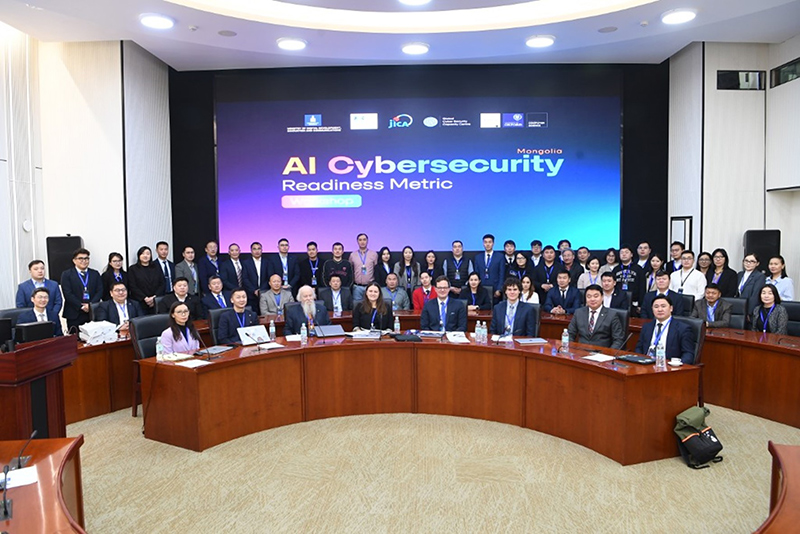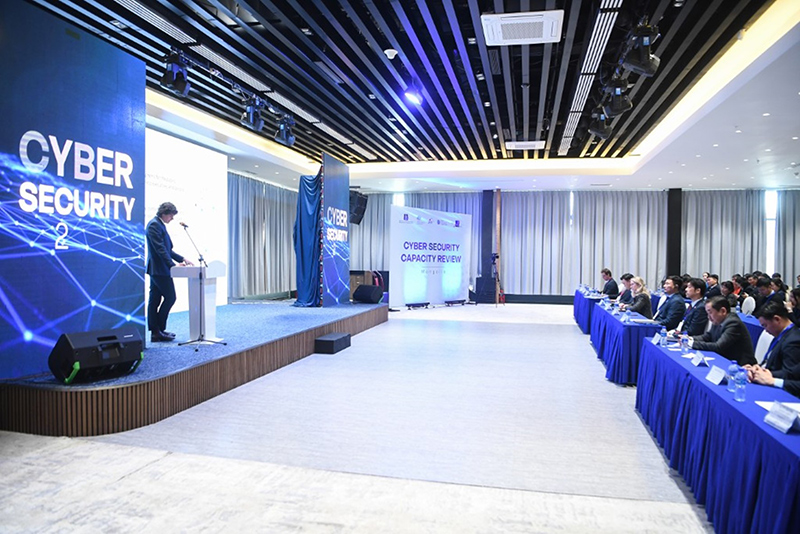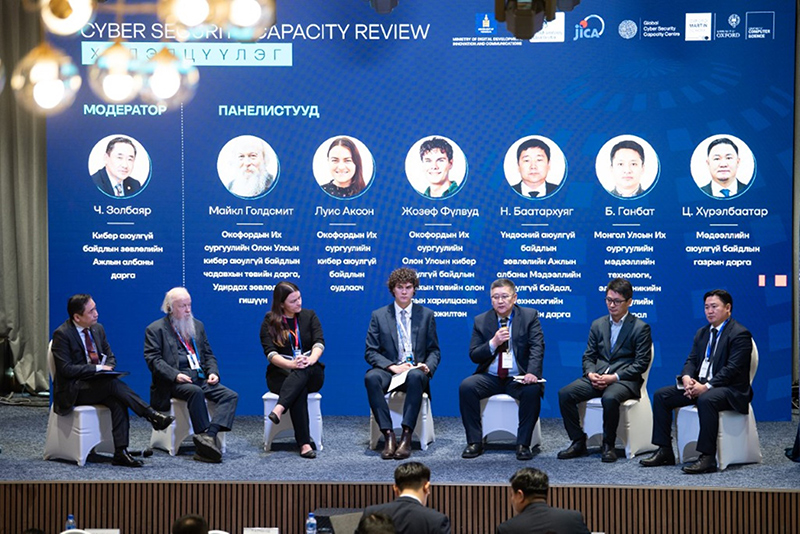JICA Co-organized Seminar and Workshop on Cybersecurity Maturity Assessment and AI Readiness in Mongolia with UK and Mongolian Governments
Day:2025.02.20
event |
On February 19 and 20, 2025, the Japan International Cooperation Agency (JICA), in collaboration with the Ministry of Digital Development, Innovation and Communications (MDDIC) of Mongolia and the Global Cyber Security Capacity Centre (GCSCC) at the University of Oxford, co-organized two events in Ulaanbaatar, Mongolia.
These events were held as part of the Technical Cooperation Project “The Project for Development of Human Resources in Cybersecurity”, jointly implemented by JICA and MDDIC.
At the seminar on February 19, it was officially announced that the final report of the Cybersecurity Capacity Maturity Model (CMM) assessment in Mongolia had been completed.
This report is based on an in-country assessment conducted by a team of experts from GCSCC in October 2024, during which they held interviews with more than 100 stakeholders from government agencies, private sector organizations, academic institutions, and international organizations.
Event report of the October assessment mission:
https://www.jica.go.jp/english/information/seminar/2024/1554767_52236.html

The final report of the CMM assessment was completed in February 2025, and during the seminar held on February 19, researchers from the University of Oxford’s GCSCC provided detailed explanations of the report’s findings.
The GCSCC team presented the results of the assessment based on the CMM framework and outlined the current status of cybersecurity at the national level in Mongolia along with recommended actions for future improvement.
The report highlights the current status and challenges in Mongolia’s cybersecurity capacity, including the progress made and the areas requiring further attention.
Mongolia formulated its National Cybersecurity Strategy (NCS) in 2022 and has been making efforts to establish a CSIRT and improve legal frameworks. However, the report points out that challenges remain, such as delays in implementation, limited budget, and a shortage of skilled personnel.
The report particularly recommends strengthening cybersecurity measures for government agencies and critical infrastructure, expanding education and training programs, and enhancing international collaboration.
A panel discussion was also held involving both public and private sector stakeholders and academic experts to actively exchange views on future cybersecurity initiatives in Mongolia.
The seminar attracted more than 300 participants and was broadcast live on Facebook and featured on TV news, reflecting the high level of interest in cybersecurity in Mongolia.

On the following day, a workshop titled “AI Cybersecurity Readiness Metric” was held as a trial implementation of a prototype assessment framework.
The event brought together 75 participants from AI and cybersecurity-related organizations in Mongolia to discuss the current state of AI applications in cybersecurity and future possibilities.
The workshop featured interactive sessions based on a set of more than 20 questions from the prototype metric developed by GCSCC at the University of Oxford.
Participants engaged in discussions and shared feedback on the effectiveness and applicability of the metric in the Mongolian context.
Four facilitators from the University of Oxford participated in the workshop, leading the discussions and reflecting on participants’ insights to further refine the metric.

Through these events and the completion of the CMM final report, Mongolia’s efforts to strengthen its cybersecurity governance, human resource development, and adoption of international standards are expected to accelerate.
JICA will continue to work in close cooperation with relevant stakeholders to support the development of a safe and secure digital society in Mongolia.

scroll